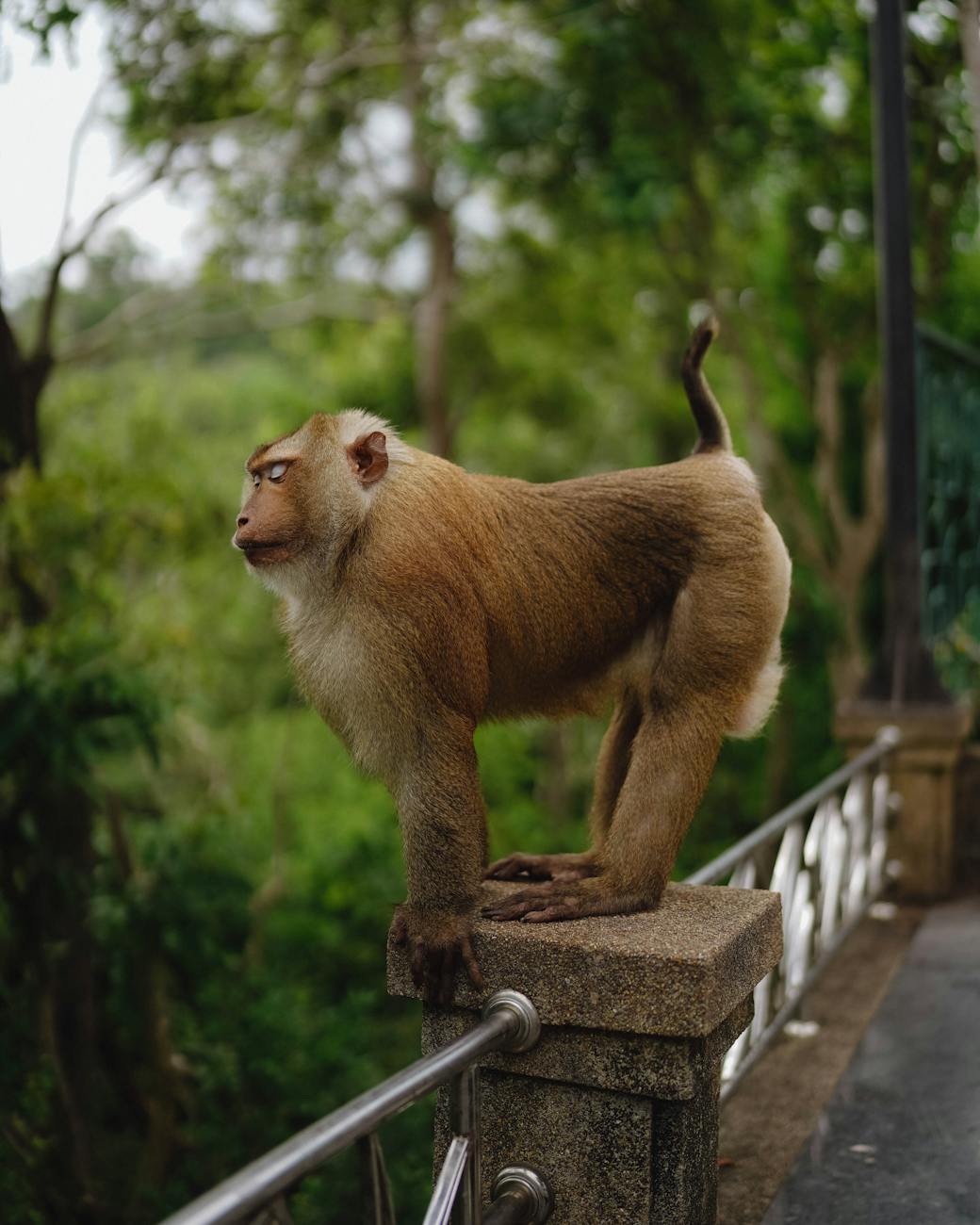Thailand is a dream destination filled with breathtaking landscapes, rich culture, and heart-pounding adventures. In recent years, wildlife encounters have surged in popularity among travelers seeking unforgettable experiences. However, a significant ethical question arises: are these encounters truly ethical or merely thrilling excursions? This blog delves into the intricacies of wildlife tourism in Thailand, examining the balance between conservation efforts and sensational experiences.
This exploration not only highlights the adventure-seeking spirit of tourists but also brings forth the vital conversation surrounding animal welfare and conservation in the tourism industry. Join us as we navigate through essential aspects of wildlife encounters in Thailand, ensuring your next trip contributes positively to both your experience and the environment.
Table of Contents
- Understanding Wildlife Ethics in Thailand
- The Thrill of Wildlife Encounters
- Conservation Initiatives and Responsible Tourism
- Tips for Ethical Wildlife Experiences
- The Great Debate: Ethical vs. Thrilling
- Making a Difference: Positive Impact Tourism
- Your Questions Answered
Understanding Wildlife Ethics in Thailand
Embracing the wonders of nature requires an understanding of the ethical implications behind wildlife encounters. In Thailand, diverse ecosystems house an array of unique species, from majestic elephants to playful monkeys. While it’s enticing to snap a photo of an elephant bathing in a river or feeding a baby tiger, it is crucial to consider the conditions these animals live in. Many establishments, driven by profit, often compromise on animal welfare standards. Therefore, understanding the background of where and how these encounters happen is vital for creating a more sustainable tourism environment.
Reputable sanctuaries prioritize the well-being of their animals, allowing them to roam freely and interact naturally, rather than performing for visitors. By choosing venues that promote humane and ethical treatment, travelers champion the cause of wildlife protection. Therefore, before you book your next expedition, research thoroughly about the organization and its practices. Ethical wildlife tourism not only provides memorable experiences but also advocates a brighter future for these magnificent creatures.
The Thrill of Wildlife Encounters
One of the alluring aspects of Thailand is the adrenaline rush that comes with exhilarating wildlife encounters. Activities like elephant trekking, snorkeling with vibrant marine life, or trekking through lush rainforests to spot rare species draw adventure enthusiasts from all over the world. The heart-pounding excitement of being so close to nature is indeed unforgettable. However, there’s a fine line between excitement and exploitation, which many travelers often overlook while chasing that perfect shot for Instagram.
Thailand’s wildlife offers something for everyone. Whether you’re tracking leopards in Khao Yai National Park or swimming alongside gentle whale sharks off Koh Tao, these close encounters bring incredible joy and instill a deeper appreciation for nature. It’s essential to remember that such thrilling experiences should be conscientious, minimizing stress on the animals while maximizing the joy of the interaction. Striving to engage in responsible wildlife tourism transforms these thrilling adventures into impactful memories that foster a connection with the wild.
Conservation Initiatives and Responsible Tourism
The role of conservation initiatives in Thailand has become increasingly significant in recent years. Organizations, both local and international, tirelessly work to protect endangered species and rehabilitate injured wildlife. Ethical tourism can greatly enhance these efforts. Visitors who choose to engage with responsible tour companies or sanctuaries play a crucial role in fostering an environment where wildlife can flourish. Part of their profits often goes back into conservation projects, making each visit an investment in the ecosystem and global biodiversity.
It is heartening to observe the positive effects of tourism on wildlife populations when done responsibly. Initiatives like “Save the Elephants” strive to educate tourists about the plight of elephants in captivity. Meanwhile, eco-friendly lodges and wildlife sanctuaries practice sustainable tourism that focuses on habitat restoration and animal rehabilitation, providing long-term benefits to wildlife. By supporting these initiatives, travelers contribute to a sustainable ecosystem while enriching their understanding of the natural world. This dual-purpose travel fosters a sense of responsibility, reminding us that adventures can simultaneously promote enjoyment and conservation.
Tips for Ethical Wildlife Experiences
Planning a trip to Thailand offers a world of possibilities when encountering wildlife, but making ethical choices can significantly enhance your experience. Firstly, conduct thorough research before booking tours or visits to wildlife attractions. Look for reviews that emphasize humane treatment of animals and proper conservation practices. Engaging with established organizations dedicated to animal welfare is key. Instead of opting for popular tourist spots that exploit animals, seeking lesser-known sanctuaries that prioritize rehabilitation and release can create more profound experiences while benefiting the wildlife population.
Secondly, consider adopting a hands-off approach during your encounters. While the urge to ride elephants or hold exotic animals can be tempting, remember that these actions can contribute to harmful practices. Instead, opt for observing animals in their natural habitats or participating in educational programs highlighting their ecological importance. Such experiences not only satisfy your adventurous spirit but also empower local communities to recognize the value of wildlife conservation over exploitation. Making informed choices helps ensure that your adventures contribute positively to both your life and the lives of the majestic creatures you encounter.
The Great Debate: Ethical vs. Thrilling
As travelers delve into the realm of wildlife encounters, a poignant question often arises: are we prioritizing thrill over ethics? This great debate reveals the intersection between tourism, wildlife welfare, and conservation efforts. Many people argue that adrenaline-pumping activities, such as cage diving with sharks or raving elephant shows, overshadow the ethical considerations, diluting the significance of animal welfare. Alternatively, proponents of wildlife encounters assert that these thrilling experiences can serve as catalysts for awareness and education, potentially encouraging greater environmental consciousness as visitors witness these animals up close.
This ongoing competition between what is exciting and what is ethical underscores the necessity for awareness among travelers. Encounters can be both thrilling and ethical when approached thoughtfully, prioritizing animal welfare while providing guests with exhilarating experiences. As awareness grows regarding the implications of wildlife tourism, it becomes all the more crucial to foster understanding and advocacy, compelling tourists and operators alike to maintain accountability and transparency for the benefit of nature’s magnificent inhabitants.
Making a Difference: Positive Impact Tourism
Making a tangible difference in wildlife conservation extends beyond choosing ethical tours; it encompasses contributing to the local community and understanding the broader implications your travel has on the environment. Positive impact tourism emphasizes responsible spending, ensuring that profits from tourism flow back into local economies and conservation efforts. Engaging in volunteer programs focused on wildlife rehabilitation, or supporting local artisans, offers travelers rich insights into the culture while fostering ecological stewardship. This multifaceted approach transforms vacations into opportunities for meaningful environmental advocacy.
Moreover, education plays a pivotal role in making a difference. By sharing stories and experiences stemming from ethical wildlife tourism, travelers can inspire others to adopt a responsible mindset toward animal encounters. Each trip can become a chance to raise awareness about the plight of wildlife in captivity, amplifying the collective voice advocating for humane treatment and conservation. Ultimately, fostering a consciousness towards ethical wildlife practices empowers both travelers and communities to ensure a sustainable future for Thailand’s precious wildlife.
Your Questions Answered
Are all wildlife encounters in Thailand unethical? Not all, but many exploitative practices exist. Researching and choosing reputable sanctuaries can ensure ethical experiences.
How can travelers contribute to conservation efforts in Thailand? By selecting eco-friendly tours, supporting conservation initiatives, and engaging in volunteer opportunities, travelers can positively impact wildlife protection.
What are some red flags for unethical wildlife encounters? Red flags include animals being forced to perform, lack of transparency regarding living conditions, or short interaction times primarily for photo opportunities.
Can ethical wildlife encounters still be exciting? Absolutely! Ethical encounters, such as observing animals in their natural habitats or participating in guided eco-tours, can provide thrilling, unforgettable experiences.
How can I ensure my wildlife experiences are ethical? Research and read reviews about venues, opt for sanctuaries focused on rehabilitation, and choose organizations that prioritize animal welfare over profit.
Embrace Ethical Adventures for a Lasting Impact
Wildlife encounters in Thailand present a unique confluence of thrill and ethical responsibility. As travelers navigate these thrilling adventures, they possess the power to shape the future of wildlife tourism through informed choices. By advocating for sustainable practices while indulging in breathtaking experiences, individuals can forge lasting memories that contribute positively to the delicate balance between humanity and wildlife. The allure of an unforgettable adventure need not come at the cost of ethical standards; together, we can enhance the beauty of Thailand’s wildlife while becoming champions of responsible tourism.
Image Credit: Pexels





